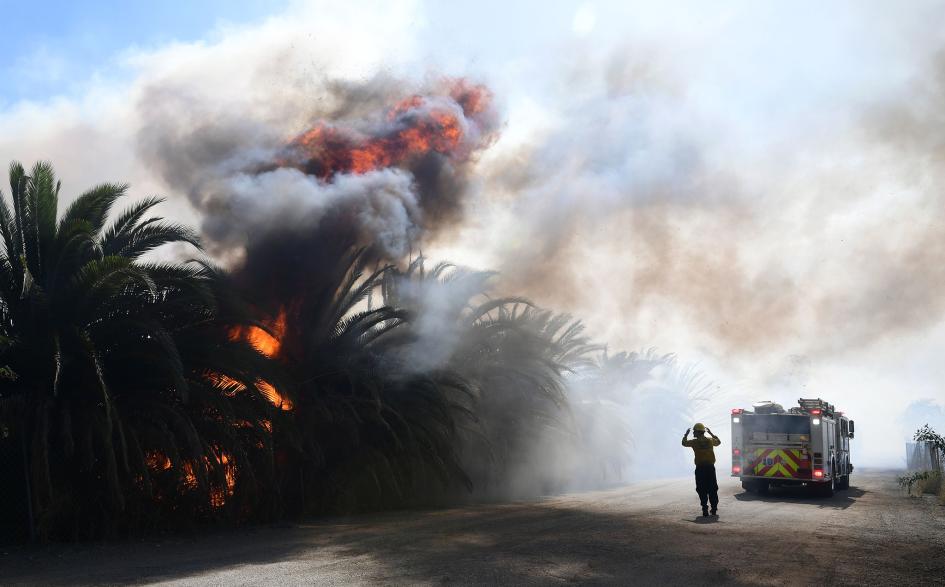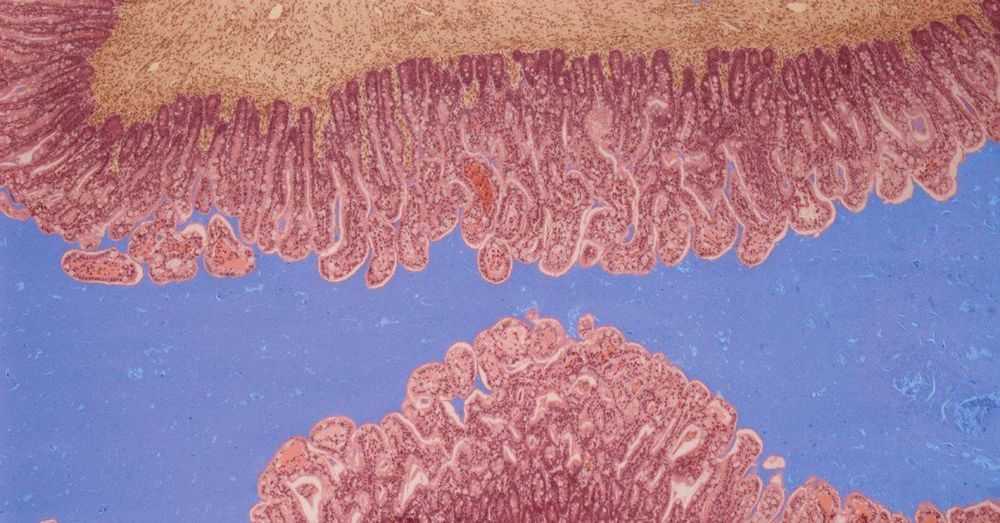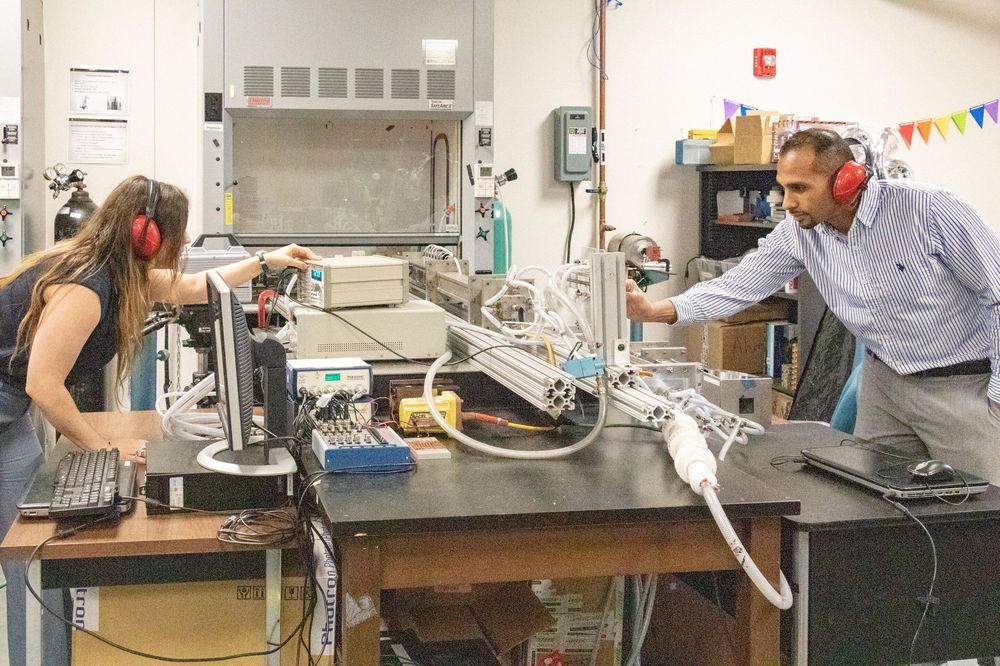As wildfires in California and elsewhere become the new normal, scientists are racing to learn the airborne health risks of the chemicals in our homes.



A pair of new studies report “impressive” benefits from a drug therapy for cystic fibrosis, a deadly and devastating disease that affects tens of thousands of people worldwide, the director of the National Institutes of Health wrote in an editorial published in The New England Journal of Medicine on Thursday.
“These findings indicate that it may soon be possible to offer safe and effective molecularly targeted therapies to 90 percent of persons with cystic fibrosis,” wrote the director, Dr. Francis S. Collins, who led the team that in 1989 identified the gene that causes the genetic disease affecting the lungs and digestive system.
“This should be a cause for major celebration,” he wrote in the Thursday editorial.

One-fifth the weight of steel but five times the strength, plant-based cellulose nanofiber (CNF) offers carmakers the opportunity to build strong, lightweight cars while sustainably removing as much as 2,000 kg (4,400 lb) of carbon from the car’s life cycle.
We’ve written before about the extraordinary properties of CNFs, which were last year demonstrated to be stronger than spider silk. Made essentially from wood, but chipped, pulped and boiled in chemicals to remove lignin and hemicellulose, it’s a highly condensed, lightweight and incredibly strong material that’s also very recyclable.
It can also, as it turns out, be used in manufacturing, where it can be injection molded as a resin-reinforced slurry to form complex shapes – and the Japanese Ministry of the Environment sees it as a potential way for automakers to reduce weight and sustainably reduce their carbon footprint.

Computer giants are racing to build the first quantum computer, a device with millions of times more processing strength than all the computers currently on Earth combined. This technology will harness the unusual laws of quantum mechanics to bring unimaginable advances in fields like materials science and medicine, but could also pose the greatest threat to cybersecurity yet. VICE’s Taylor Wilson meets the scientists at the cutting edge of this new age of computing.
Check out VICE News for more: http://vicenews.com
Follow VICE News here:
Facebook: https://www.facebook.com/vicenews
Twitter: https://twitter.com/vicenews
Tumblr: http://vicenews.tumblr.com/
Instagram: http://instagram.com/vicenews
More videos from the VICE network: https://www.fb.com/vicevideo

No one knows how long it has been drifting through the empty, cold abyss of interstellar space. But this year an object called comet 2I/Borisov came in from the cold. It was detected falling past our Sun by a Crimean amateur astronomer. This emissary from the black unknown captured the attention of worldwide astronomers who aimed all kinds of telescopes at it to watch the comet sprout a dust tail. The far visitor is only the second known object to enter our solar system coming from elsewhere in the galaxy, based on its speed and trajectory. Like a racetrack photographer trying to capture a speeding derby horse, Hubble took a series of snapshots as the comet streaked along at 110,000 miles per hour. Hubble provided the sharpest image to date of the fleeting comet, revealing a central concentration of dust around an unseen nucleus. The comet was 260 million miles from Earth when Hubble took the photo.
In 2017, the first identified interstellar visitor, an object formally named ‘Oumuamua, swung within 24 million miles of the Sun before racing out of the solar system. Unlike comet 2I/Borisov, ‘Oumuamua still defies any simple categorization. It did not behave like a comet, and it has a variety of unusual characteristics. Comet 2I/Borisov looks a lot like the traditional comets found inside our solar system, which sublimate ices, and cast off dust as they are warmed by the Sun. The wandering comet provides invaluable clues to the chemical composition, structure, and dust characteristics of planetary building blocks presumably forged in an alien star system.
For more information: https://www.nasa.gov/feature/goddard/2019/hubble-observes-1s…lar-comet/

Diet Plan For Old Age: Reduced food intake must be implemented early and be sustained.
Someone has rightly said, ‘healthy eating begins with you.’ Nourishing your body with the right nutrients and maintaining a healthy weight can help you stay active and independent even as you age. According to a recent study published in the journal Nature Metabolism, reduced intake of food in both humans and animals may improve health in their old age, further leading to longevity. However, in order to improve health in old age and to extend lifespan, the pattern of the diet (diet plan) must be established earlier in life. Scientists from the Max Planck Institute for Biology of Ageing, the Excellence Cluster for Ageing Research at the University of Cologne, the Babraham Institute in Cambridge and UCL observed that mice become healthier when they were fed in moderation from early stage and maintained it before entering old age.

An Oxford scientist claims a Nobel-Prize-winning conclusion is wrong.

The origin of the universe started with the Big Bang, but how the supernova explosion ignited has long been a mystery—until now.
In a new paper appearing today in Science magazine, researchers detailed the mechanisms that could cause the explosion, which is key for the models that scientists use to understand the origin of the universe.
“We defined the critical criteria where we can drive a flame to self-generate its own turbulence, spontaneously accelerate, and transition into detonation,” says Kareem Ahmed, an assistant professor in UCF’s Department of Mechanical and Aerospace Engineering and co-author of the study.